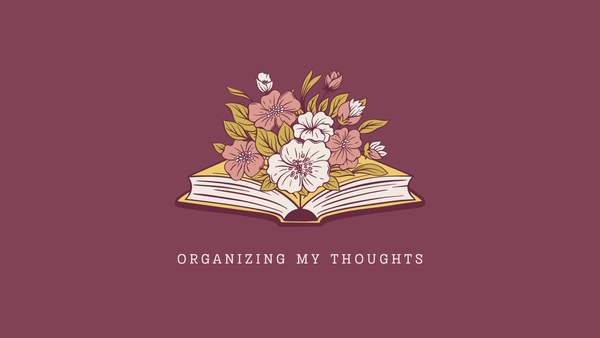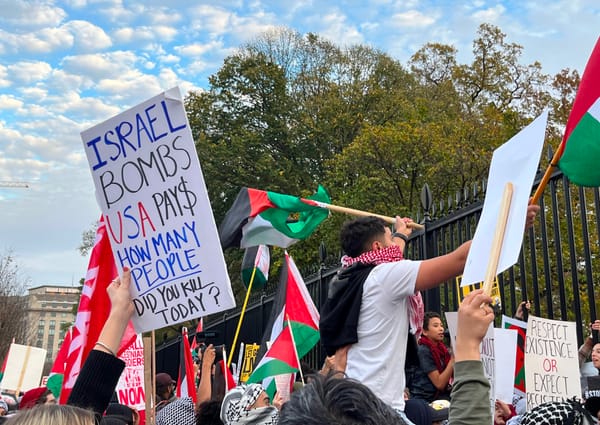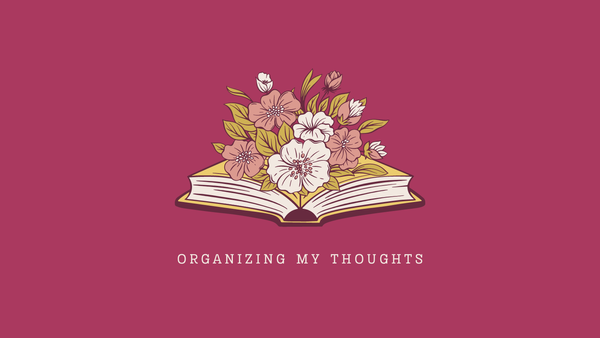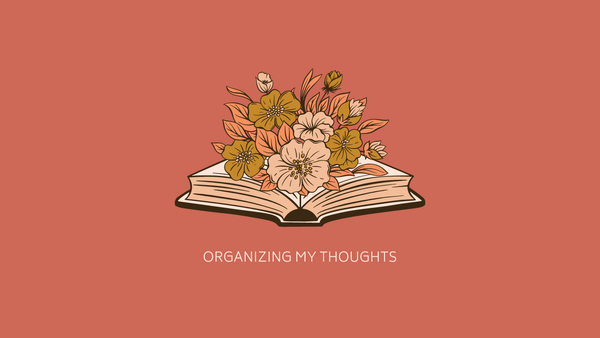Must-Reads and Some Post-Raid Reflections
From the billionaires who lobbied for campus raids to mask bans, tech dystopias, and attacks from the far right, here are some of the most important stories I’ve read this week.
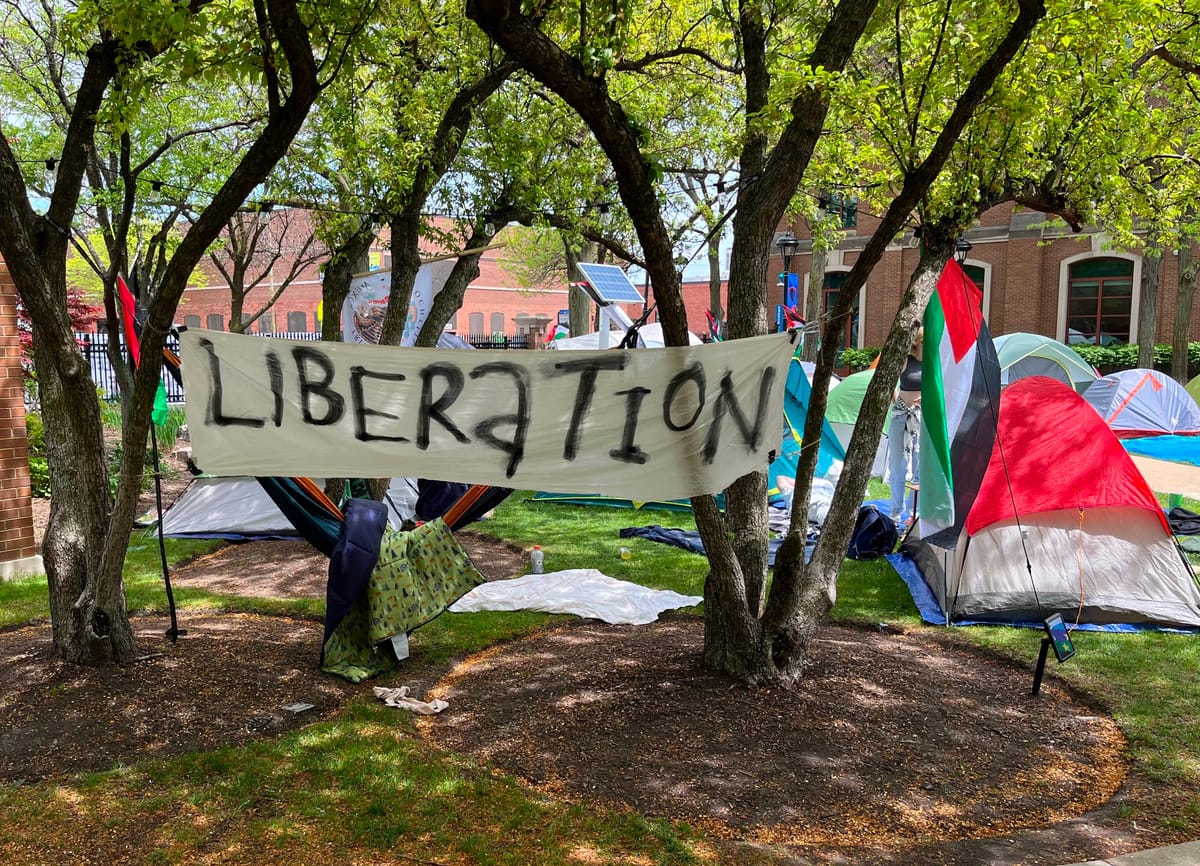
From the billionaires who lobbied for campus raids to mask bans, tech dystopias, and attacks from the far right, here are some of the most important stories I’ve read this week.
Business titans privately urged NYC mayor to use police on Columbia protesters, chats show by Hannah Natanson and Emmanuel Felton. “A group of billionaires and business titans working to shape U.S. public opinion of the war in Gaza privately pressed New York City’s mayor last month to send police to disperse pro-Palestinian protests at Columbia University, according to communications obtained by The Washington Post and people familiar with the group.”
NC bill removing health and safety exception for wearing masks passes Senate (WSOCTV.com News Staff). “North Carolina has had a ban on face masks since 1953. But early on in the pandemic, lawmakers made a health and safety exception to the law so people could protect themselves from COVID-19. The Unmasking Mobs and Criminals bill would repeal that exception.” (I wish I had a more thoughtful piece about this situation to share, but you get the idea.)
This Nakba Day, Palestinians Remind the World We Will Not Be Erased by Michel Moushabeck. “In short, Zionism is a settler-colonial ideology and political system that privileges one people over another and strives to ethnically cleanse and erase Palestinians from Gaza, the West Bank and East Jerusalem. This is the end game of 76 years of terror and ethnic cleansing. It did not start on October 7 and it is not about Hamas.”
Why far-right groups are disrupting US campus protests: ‘When there’s so much attention, they show up’ by Ali Winston. “‘Their animosity towards the campus demonstrations are part of this Christian far-right perspective that LGBTQ folks are threats to Christianity, and so are Palestinians or Muslims,’ Cravens said.”
For tech CEOs, the dystopia is the point by Brian Merchant. “As much as we needle, or mock, or point out that the tech titans are stripping their references and products of context — it’s all in vain. The CEOs obviously don’t much care what some flyby cultural critics think of their branding aspirations, but beyond even that, we have to bear in mind that these dystopias are actively useful to them.”
Palestinian Feminists Speak Out Against Reproductive Genocide by Susana Draper, Belén Marco & Ana María Morales. “Decolonial feminism, on the one hand, rejects, interrupts and forcefully opposes these colonial politics of death. And at the same time, it uplifts alternative visions that affirm our lives and the potential futures of our people on our homeland. We have to continue to uplift those life-giving visions at the same time that we reject this colonial politics of death.”
Zionism Will Never Be a Solution to Antisemitism by Ben Lorber & Shane Burley. “Fighting anti-Zionism has become a proxy, for much of the Western far right, for absolving the guilt of participating in antisemitism, while at the same time advancing their own imperial interests.”
UK climate activists convicted in first trial of new anti-protest laws by Damien Gayle. “Three climate activists have been convicted of ‘interference with key national infrastructure’ by marching in the road in west London for 20 minutes, in the new offence’s first test at trial.”
The Antisemitism Awareness Act bars the teaching of modern Jewish history by Benjamin Balthaser. “I mention Gold as his novel and many essays would be all but inadmissible in my classroom and in Jewish Studies classrooms should the ‘Antisemitism Awareness Act’ pass the Senate. This law, requiring the Department of Education to adopt the definition of antisemitism put forth by the International Holocaust Remembrance Alliance, says antisemitism is not only ‘hatred of Jews’ but includes three clauses about criticism of Israel.”
Your Guide to the May 21 Elections by Daniel Nichanian. “On the menu? Abortion has become a focal point in a supreme court race in Georgia. Both major parties will choose their nominees in several congressional races that may be key to November’s battle for the U.S. House. And Democratic Party factions face off in a swath of local primaries in Portland.”'Sad What We Are Doing': Global CO2 Increase Sets New All-Time Record by Olivia Rosane. "’I'd make this the lead story in every paper and newscast on the planet,’ said Bill McKibben. ‘If we don't understand the depth of the climate crisis, we will not act in time.’”
Supporting Political Education
Last week, I mentioned that I am working on a new political education project: the Doing Justice Collaborative. I have already connected with some groups of young people who are interested in participating in workshops this summer on topics like Organizing 101, direct action, and lessons from Let This Radicalize You. I also plan to connect young people with other movement educators who can address topics like conflict resolution, harm reduction, and organizing against fascism. At present, I could use help funding this initiative. If you are able to donate, any amount would be significant. We are more than halfway to our goal.
Final Thoughts
During the last week, I have spent time with students at multiple student-led encampments–some of which have since been dismantled. I have also met virtually with some students who are grappling with questions about what comes next, now that their encampments have been raided by police. While I was in Denver, over the weekend, giving a talk to university students, I had several conversations about the Occupy movement. Occupy is not the only encampment-based protest movement I’ve been involved with, but it’s one that I believe holds a lot of relevance right now. It was a flawed movement, to be sure. As I’ve told some of the students I’ve met, their politics are much more advanced than anything Occupy collectively put forward. Occupy was born into the void of a left in the United States. The fact that we were having conversations about socialism and anarchism was, in itself, impressive at a time when dissent had become so domesticated under President Obama. Today’s student movement for Palestine has a much sharper political analysis, and unlike Occupy, it has named clear objectives. However, like the young people at the heart of the Occupy movement, Palestine solidarity protesters on college campuses have taken a serious beating. In many cases, they have been brutalized by police, penalized by their schools, and exhausted by the demands of a non-stop protest tactic. I understand why some now feel uncertain about where to go from here.
As I told some students in Denver, we felt a similar uncertainty here in Chicago back in 2011. Occupy Chicago took 300 arrests attempting to do what many activists across the country had done: create an encampment. For a movement without clear demands or a larger political strategy, the tactic of occupation had become an end in itself. Those of us who argued that the movement’s momentum should be channeled into local struggles against austerity were told, “After we get an encampment.” When it became clear that Rahm Emanuel would not allow us to seize space in downtown Chicago, we had to adapt, give purpose to our raw political will, and make meaning of our collective capacity without erecting tents. It was in that crisis that we found our potential.
In my opinion, not allowing us to claim a space that would have occupied so much of our energy and attention was one of Rahm Emanuel’s greatest political miscalculations. If we had succeeded in claiming space for an encampment, our organizers would have been consumed by its maintenance. I know from experience with other occupation-style protests that encampments are profoundly draining and that the conflicts and crises inherent in such work can seem unending. The tactic can be powerful and even essential, but in late October, we would have been on a collision course with a Chicago winter. We would have been consumed, overwhelmed, and ultimately brutalized and displaced.
Instead, our nightly general assemblies became a place to discuss the many actions we would organize. We participated in political education, and we engaged with local struggles. For a time, we were a force to be reckoned with in our city, and I firmly believe that we helped shape a more militant culture of dissent in Chicago. From battles against austerity to support for the historic strikes of the Chicago Teachers Union, we brought something essential to movement work in our city. Instead of focusing on one manifestation of our politics, rage, and hope, we were everywhere, and we raised hell.
I am not saying that those of you who have experienced raids, arrests, or violent displacement are in some way fortunate. No one should have to experience the violence or indignity of arrest, and I hope that those of you who have been harmed are getting the support you need to heal. I hope you are consoled by the knowledge that your actions have been uplifting for students in Palestine–students whose universities have been destroyed and whose communities have been ravaged by bombs that have killed more than 35,000 people. The harsh realities of an ongoing genocide can make every setback in our organizing feel all the more upsetting. Still, we must remember to look for the potential unleashed by each setback. As students and as organizers, you have been underestimated. You have already elevated an essential cause and created centers of struggle within the institutions you inhabit. Now, for many of you, it is time to bring your love, power, and solidarity into the streets as you build intergenerational bonds and forge connections across our movements. Do not fixate on notions of being the vanguard of a movement or on recreating particular moments of strength. Assess the infrastructure, skills, and relationships you have built together, and figure out what it means to keep moving. Whatever comes next, you will not be alone in this work, your grief, or your hope.
If you are part of one of the student groups that has continued to hold its ground, in this moment, I want to thank you for your commitment and your perseverance. Whatever happens next is not the end of a story but only the turning of a page. We all have a part to play in writing the next chapter.
Wherever you are in your efforts, I am so grateful to be in this struggle with you, and I look forward to the work we will do together. We have a world to win.
Much love,
Kelly

